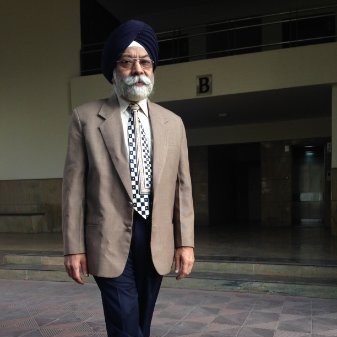About Event
Course Objective:Course Objective:
Industries are part of a modern day essentials of any country. Irrespective of the size & type of industrial set-up, it will have basic two types of equipment (a) Rotary (b) Static or Stationery. While the Rotary equipment like Pumps, Turbines, and Compressors get due attention being rotating or dynamic in nature, at the same time the stationary equipment gets neglected or taken for granted to be available for its operation. Also during its maintenance, it gets lesser priority compared to rotary equipment during its regular /periodic outage & maintenance.
Since the static equipment are always taken to be available for operation, it is pertinent for the concerned persons in plants to know the basic aspects & features of these equipment which leads to safe operations of such equipment. Therefore the Purpose & Scope of this two days deliberations is to arrive at basic understanding of some operating principles of static equipment, by developing understanding of some basic design aspects, typical construction & safety features & essential points to be taken care for its maintenance as well. This, in a way, really translates to “Safe Operating Principles” for faithfully managing the operations and its management of Static equipment.
Now let us look at some the major static equipment in any plant like Furnaces, Heat Exchangers, Vessels, Pipelines, and Valves etc. Each of these are designed for altogether different duties & services in any industry but are essentially expected to be available for operations for all the times. The only opportunity available for some its maintenance is during its overall or turn around, else these are replaced. Some of these even do not have its standby too.
Industrial application or operational treatment, or both, if we relate to it the continued availability for its duty makes, shall lead us to think about how to avoid the problems encountered either in its use or while the equipment is discharging its duty. Various industries have sometimes special uses for these equipment either as one of the very critical one or for general application. The shore-to-ship steam purity standards of industrial water systems and their uses can generally be described as under:
• Furnaces: Its uses various types of fuels for heating various feeds in industries, indirect food processing, and or power generation. These are also termed as fired heat exchangers. The combustion as process & its engineering is an important aspect of its safe operation.• Heat Exchangers: These are non-fired heat exchangers, basically meant to improve overall thermal efficiency of the system. So it is important to understand its principles of design & operation to get best out of it.
• Tankage: These are meant to store various types of liquids, which may include hydrocarbons as well. These are very important static equipment as its failure could be disastrous for any industry. These storage tank are meant to store various liquid raw materials, semi finished & finished products. These are one time investment for an industry, any sudden failure can lead to non-availability of ullage resulting into reduction of production or even stoppage of the plant.
For any high hazard industry each of these equipment & its associated systems are technically industrial systems, but equipment remain Static mechanical equipment.
The need to treat these equipment within its limitation of design parameters of such systems needs to be recognized & well established; however, there are currently certain industrial standards in place, which govern its designs/ types and application including its safe operating principles. These equipment being part of main systems often are to undergo abuse of operational practical problems.
Some of the aspects are part of initial design features & subsequently the industries go for higher throughputs this leads for operating group to know carefully the limitation or margins of limits for achieving the newer targets or where to pinch the margins. While normal operations are “smoother” the challenges are always during start up / commissioning & de-commissioning. These aspects will also be discussed in brief.
In view of developing major projects & infrastructural facilities, the knowledge of these equipment Industrial will play a very positive role to source, treat & manage the equipment. Fact also remains that with every passing year & decade, the quality of services deteriorate. To some extend these can be rejuvenated. On the contrary, this too had its own share of pathos with respect to availability of equipment & its handling during plant turn arounds.
In view of the foregoing it is pertinent & important for all industries using these equipment to appreciate & understand the problems associated with basic need of design aspects & treatment during the operation it needs to make the equipment safe.
In current days scenario this has become a dynamic subject & knowledge needs to be upgraded to keep abreast with current & future scenarios for industrial static equipment, its position of requirement in operation, practical limitation and treatments be offered in a cost effective manner.
It goes without mentioning that modern day industrial management techniques are to take advantage of newer technologies & innovations & run the associated plants, its static equipment and associated systems in most effective & efficient manner.
This interactive course is dedicated to create platform & to look at whole process of static equipment management for industrial application. It could be furnace system, tankages, heat exchangers, piping systems & valves.It also will have an overview of important pre-commissioning & de- commissioning a thrust to learn.

